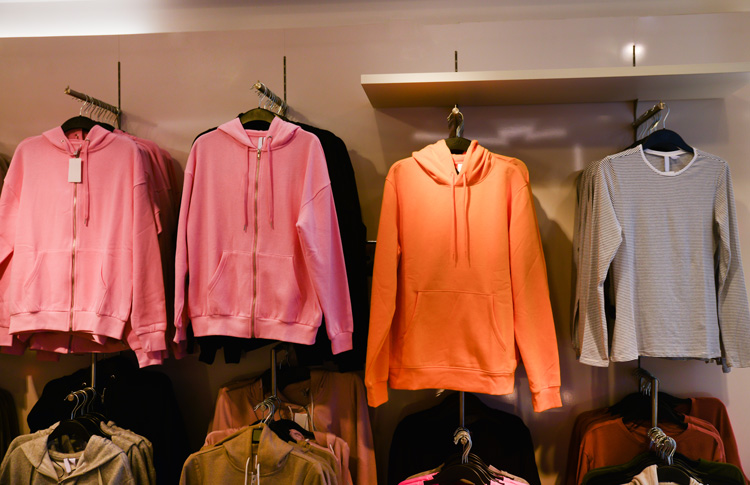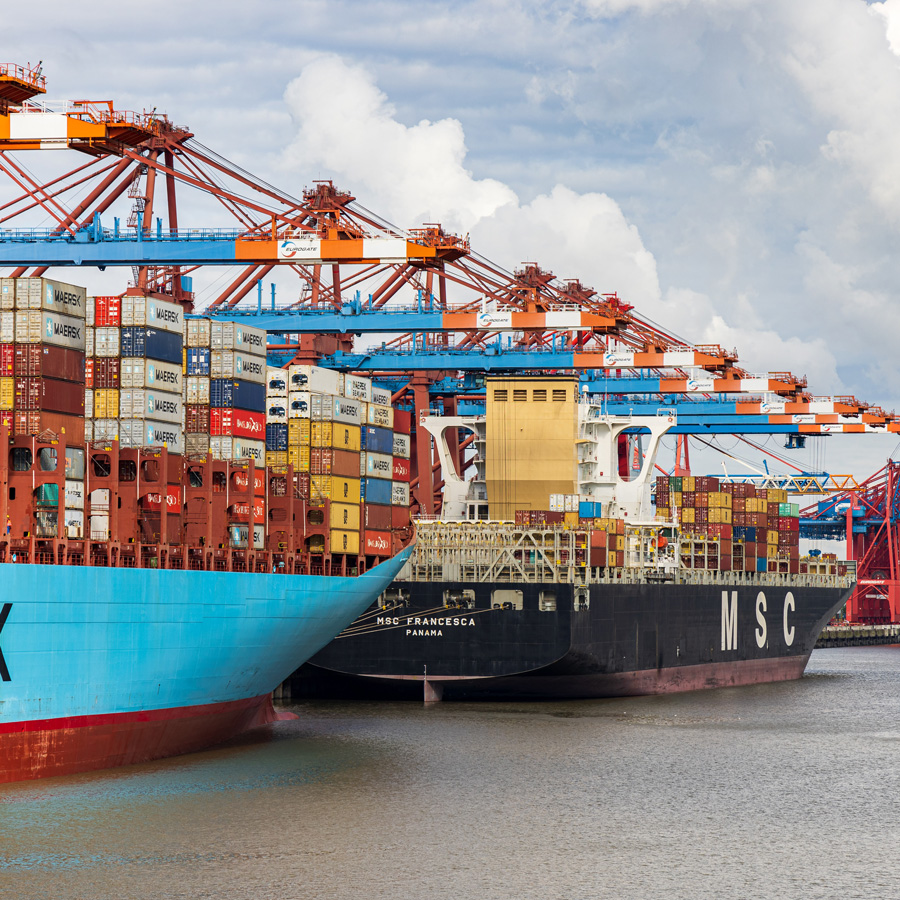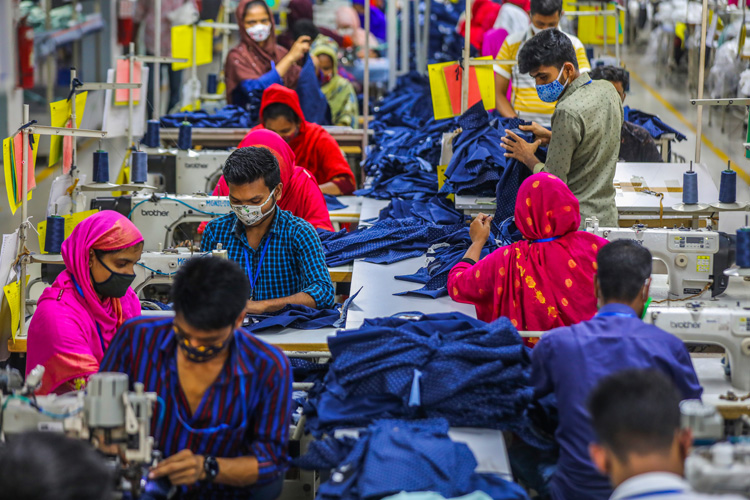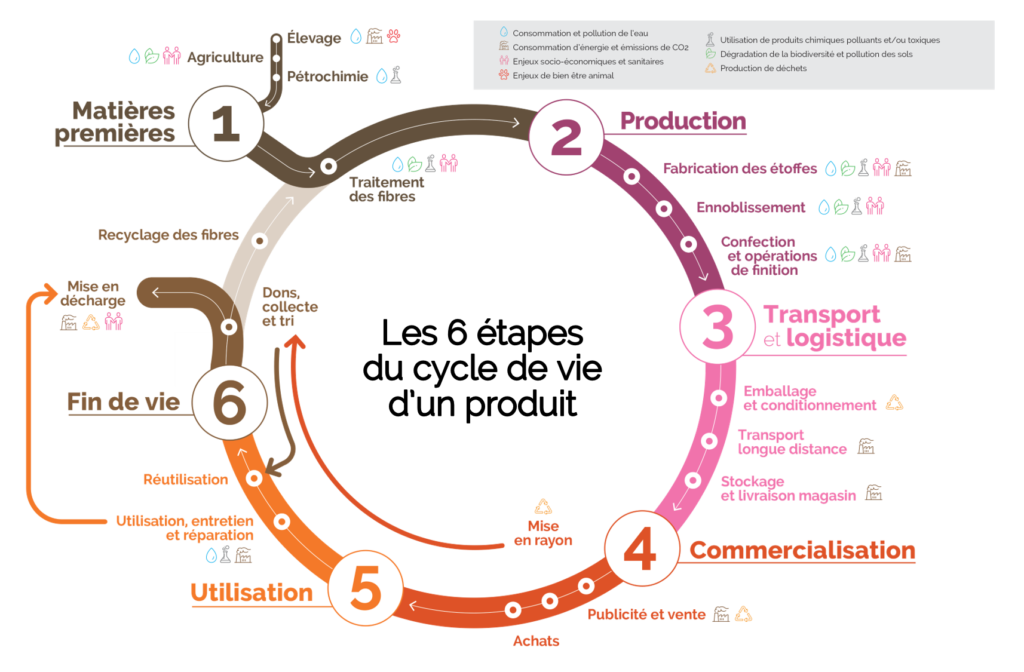The project
Why is it important for us to be eco-responsible and ethical ?

The impact of fast fashion
Globalized mass production, also known as "fast fashion", leads to high inventories and a policy of discounting to clear stocks. By encouraging us to buy more and cheaper, the perverse effect is that it costs both mankind and the planet.
Everything is pulled down : fabric quality, tailoring, wages.
In this globalized system, raw materials are bought from the lowest price. To produce cheap fabrics, manufacturers use large quantities of water and polluting/toxic chemicals. They degrade biodiversity and soil. They underpay their workers, creating perverse health effects such as water contamination by chemical pollutants. They emit high levels of greenhouse gases using coal-fired energy.
In Europe, REACH regulations govern and limit the use of chemicals in the manufacture of fabrics.
The dyeing of Liberty Fabrics fabrics is subject to these regulations, as the fabric is made in Italy. It is in the DNA of our responsible brand to fight against these practices.
Illustrated in figures:
According to ADEME, the fashion industry worldwide emits 1.2 billion tonnes of greenhouse gases, i.e. 2% of all greenhouse gases. "In 2050, the textile sector would even emit 26% of global greenhouse gas emissions if current consumption trends continue.
Cotton , a raw material , accounts for 25% of the world's textile production and consumes ¼ of the pesticides used worldwide . Organic cotton excludes the use of chemical pesticides and reduces water consumption by 80%.
It takes 2,700 liters of water to produce a cotton T-shirt in regions where water is scarce (Central Asia, Pakistan, Australia).
A polluting industry
Transport and logistics have an impact on waste production, energy consumption and, consequently, greenhouse gas emissions.
The cheap labor has relocated manufacturing to India, Pakistan, Bangladesh, China and now Africa. Products are individually packaged in plastic polybags. They are then packed into container-loads and shipped around the world.
The purchase and care of clothes emit waste and greenhouse gases: travel to buy clothes, polluting detergents, ironing, tumble-drying.
The end-of-life of clothing creates health and environmental impacts. In most cases, clothes are burned, buried or rot in open dumps, releasing pollutants into the soil, water and air.

According to ADEME, out of 700,000 tonnes of textiles and footwear disposed of
on the market every year, only 1/3 would be recycled.

Difficult working conditions
Last but not least in this painful equation comes the working conditions offered to employees.
Laws in European countries regulate work and provide social protection. Unlike many other countries, it is impossible to employ minors or pay them less than the minimum wage. These rules limit the number of hours worked and regulate rest days.
China alone produces 40% of the world's clothing. It puts in place laws that it does not enforce.
Putting poorly made clothes on the market is a source of large-scale pollution. The textile industry in Asia overuses our planet's resources and contributes to the creation of misery... all to produce T-shirts worn for two months with the famous running seams! Sad, isn't it?
En créant la marque la Rose et le Renard; nous voulons que les vêtements durent et perdurent. En achetant moins et mieux, nous pouvons contribuer à prendre soins de la santé et l’écosystème des roses et les renards!
Pour en savoir plus sur notre parcours, découvrez notre histoire.
Nos engagements et partenaires
Parce que nous ne sommes pas les seuls à proposer une alternative à la fast fashion, La Rose et le Renard adhère à l’association Fashion Green Hub et En Mode Climat, deux organisations qui œuvrent pour informer des bienfaits d’une consommation éthique et d’une mode ‘responsable’. Comme eux, nous sommes convaincu que les entrepreneurs ont un rôle important à jouer en proposant des modèles socio-économiques vertueux.
La Rose et le Renard est aussi référencé par :
- le site du Made in France qui recense les marques qui fabriquent en France
- Slowlille qui référence les acteurs engagés dans la slow consommation dans les Hauts de France


Mode responsable, le guide pour agir, alliance du commerce (PDF) – deloitte_guide-mode-responsable-2019.pdf